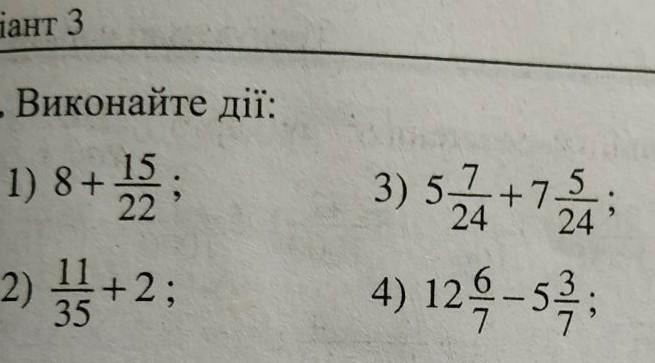Предмет: Математика,
автор: parhomnasta71
помогите решить,забыла.
Приложения:

Ответы
Автор ответа:
0
Ответ:
1) 8 15/22
2) 2 11/35
3) 12 12/24 или сокращенно 12 1/2
4) 7 3/7
Пошаговое объяснение:
Автор ответа:
0
Ответ:
1) 8 15/22
2) 2 11/35
3/12 12/24
4) 7 3/7
Похожие вопросы
Предмет: Русский язык,
автор: вика17112004
Предмет: Английский язык,
автор: Sanjar2003s
Предмет: Русский язык,
автор: kristina260
Предмет: История,
автор: lagutin2608
Предмет: Литература,
автор: Няша200411